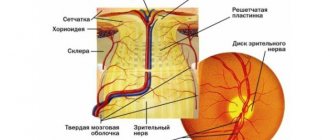How are the stomach and nerves connected?
It would be interesting to find out whether nerves can cause stomach pain? At the first signs of discomfort, many people begin to take various medications that can worsen their health. With strong mental overexcitation, vasospasm occurs and blood flow to the mucous membrane of the gastrointestinal tract decreases.
Over time, the surface changes. The first manifestations of gastritis may appear. Gradually, the mucous layer of the stomach ceases to function normally, and various diseases develop (gastritis, peptic ulcer of the stomach and duodenum).
Inflammation also affects other organs of the digestive tract. Pain in the epigastric region appears, which is periodic or constant. Inflammation of the mucous membrane of the stomach and intestines can appear even with a normal diet, proper and healthy lifestyle.
At the initial stage of damage to the gastrointestinal tract, the following symptoms appear:
- abdominal pain in different areas (depending on the location of the inflammation);
- nausea and vomiting;
- belching of air that has an unpleasant odor;
- flatulence and bloating;
- heartburn, feeling of a full stomach;
- feeling of a lump in the throat;
- rapid heartbeat leading to tachycardia.
Symptoms of “irritable bowel”
Most often, this condition causes pain and discomfort, which are mildly expressed and more reminiscent of unpleasant sensations than actual pain. These sensations can be anywhere where the small intestine exists: for example, nervous pain in the lower abdomen, or in the navel area. In addition to unpleasant sensations, there are:
- there is an imperative urge to defecate. This means that the desire to empty the bowels is so strong that “there is no limit to the torment.” As a rule, there is no logical explanation for this: there is no delay in bowel movements for many days before this;
Possible causes of the pathological condition
There are many factors that can provoke pain, nausea and vomiting in a person. The main ones are pathogenic microorganisms, but there are also psycho-emotional reasons: anxiety, stress and severe anxiety can lead to a decrease in the body's defenses.
As a result, the body's resistance sharply decreases and the chance of getting sick increases several times. Hence the pain of various types, radiating to the stomach. The factors that lead to discomfort are discussed below.
| Social phobia | A predisposing factor is a feeling of anxiety before an important event, being in the company of unknown people and the fear of not being liked by them |
| Severe stress or fear | Experiences against the background of a conflict with a loved one, refusal to hire for a desired position, etc. |
| Overexcitement | The reasons can be both positive and negative. Occurs against the backdrop of prolonged excitement before an important event. |
Most often, the cause of pathology is bullying and ridicule from classmates and peers. In addition, teachers and parents can have the same negative impact on the child due to pressure on him.
Why is there a problem?
Stress can cause digestive organ dysfunction.
Neurological disease often becomes a source of gastric dysfunction. Often pain and digestive problems are associated with the influence of such negative factors:
- Increased social anxiety. Every person at least once in his life has experienced severe stress in the face of a different life situation.
- Stress or fear of something.
- Too excited. The most common source of stomach pain is overstimulation. When a person thinks with great anticipation about an upcoming trip, wedding or other important date or event, an upset stomach often occurs. In this case, pathological sensations can persist for a long time.
Return to contents
Nervous gastritis
An inflammatory disease characterized by damage to the gastric mucosa, the main cause of which is nervous diseases. The mechanism of development of the disease is based on impaired circulation of internal organs due to strong emotional stress.
As a result, the motility of the organ changes and the function of the stomach is disrupted. Bacteria that have entered the cavity begin to actively multiply and a new focus of inflammation appears. In addition to the main symptoms of nervous gastritis (abdominal pain, belching, heartburn and burning sensation), general fatigue of the body, increased fatigue, drowsiness, and disturbances in heart rhythm appear.
Diagnostic procedures
Gastroscopy is the main diagnostic method for pain caused by nerves.
A highly specialized specialist can help you cope with a problem that arises due to nervousness. During the examination, the doctor finds out what symptoms are bothering the patient. It turns out how tense the muscles of the stomach are. The main method of examination for nerve pain is gastroscopy, through which the mucous membrane of the organ is assessed and inflammatory processes are identified. Additionally, the following manipulations are carried out:
- biopsy of damaged tissue;
- biochemical blood test;
- ultrasound diagnostics of the abdominal organs;
- test for identifying the bacterium Helicobacter pylori;
- x-rays.
Return to contents
Nervous pancreatitis
Inflammatory disease of the pancreas caused by psycho-emotional stress. The mechanism of action of the disease is based on internal experiences that most often manifest themselves in childhood. Why does inflammation of the gland occur?
In addition to the heavy load on the pancreas, young patients experience sudden changes in mood, their performance decreases and hormonal imbalance is noted. Signs of pancreatitis are severe girdle pain in the upper abdomen, nausea and vomiting, increased body temperature, and indigestion in the form of diarrhea.
Treatment
Pain in the stomach and any part of the digestive tract caused by stress is treated in the same way as stress.
To do this, you should follow some rules that will allow you to quickly restore the normal functioning of your internal organs:
- rest and bed rest;
- same diet for the first week. You can refuse to eat for a while - after all, hunger allows the stomach to rest, relieving irritation and reducing the inflammatory process;
- minor physical exercise (only with the permission of the attending physician);
- eliminate the cause of pain - get out of a stressful situation (a psychologist or a good friend will come to the rescue);
- resort to the use of herbs: decoction of chamomile, yarrow, caraway, flax seed, etc.
It is worth noting that only a qualified doctor can determine the cause of stomach pain. Sometimes the lower abdomen and other parts of it hurt due to diseases not related to the gastrointestinal tract. Therefore, in no case should you self-medicate, so as not to cause even greater harm to your health.
Unpleasant sensations in the gastrointestinal tract (nausea, heartburn, diarrhea, etc.) are one of the most common bodily manifestations of mental discomfort, anxiety, restlessness, and depression. It has now been scientifically proven that abdominal pain is often caused by nerves.
When I'm nervous my lower abdomen starts to hurt
This happens to me too, when I get nervous or very tired... On to the next one. The only thing that surprises me is that, in my opinion, I’m not nervous, that is, without hysterics and breakdowns - just tense situations are the absolute standard of my work, I don’t seem to be freaking out - and the baby reacts: For me it’s not stress - but for him, apparently Yes. Daria Magazine.
Find girlfriends. From the user's journal Daria. Available: For everyone. Daria Kazan. Pain in right side. Video: when I'm nervous my lower abdomen hurts. Follow the comments. Malinovka Tashkent. It’s like this for me now, lately my husband has been getting into trouble, and after these quarrels he’s been pulling his weight. I can’t straighten up, it’s as if my muscles are torn.
I don’t know what it is, I’m tired of running to doctors with fear. Two days ago I had an ultrasound and they said everything was ok. Is it really possible for nerves to start to tone in 2 days?! This is spam. Reply Like. Olga Irkutsk. Yulenka Kazan. Kristina Kulakova Ekaterinburg. Daria The best thing is joy... throw away all your problems and remember what brings you joy.
At this period, this is definitely not a tone, but the nerves contribute to a greater flow of blood to the uterus and it begins to contract, which can lead to miscarriage or premature pregnancy, so there is no need to be nervous, although it is sometimes difficult... think about the baby, he feels everything... Therefore, we put a block and even if the whole world turns upside down - you and your baby should be calm and joyful!
And you don’t need any medications, especially noshpa, it’s bad for the baby!!! Kristina Kulakova thank you. JanusikMama3Lapusek Rio de Janeiro. Katya Gomel. Regina Kazan. ZHUZHA Magnitogorsk. Constipation in a baby. Girls, what are you talking about? My little victory over the system or how we popped into the garden.
All articles. Sections and services. User Agreement Policy in the field of processing of personal data.
How to get rid of it?
There is no special diet that would help get rid of abdominal pain caused by nervousness.
However, most people suffering from neurosis know which foods are worse for them to digest (cause slight indigestion, increased gas formation, etc.). These are the products you need to give up. Their list is usually individual for each person.
For most suspicious patients with neurosis suffering from abdominal pain, what to eat is not so important as how much and how quickly.
Symptoms of fullness may include a slight heaviness in the stomach, a feeling of fatigue, even slight dizziness. However, for calm people who do not suffer from chronic anxiety and hypochondria, these signs of satiety are pleasant.
Reviews
Maria, 17 years old: My stomach often hurts due to nervousness. The first time I noticed that I began to experience discomfort when I was very nervous (at the Unified State Examination at school and entrance exams to a university). In addition to abdominal pain, there could be a feeling of a lump in the throat, a feeling of nausea, and sometimes upset stool. I had to see a doctor because I didn’t know what to do with this problem. The treatment was aimed at calming the nerves and following a diet for several weeks.
Irina, 42 years old: I heard that the stomach can hurt due to nervousness. But I couldn’t even think that the problem would affect me. My job is stressful; I work in a hospital in the oncology department. Unfortunately, I often encounter the pain of other people and transfer all the experiences through myself. My stomach began to hurt after 4 years of my work in this department. The following system has already been developed: as soon as you get very nervous, pain in the stomach, rumbling and intestinal spasms appear. I am following all the doctor’s recommendations, but I still can’t eliminate my anxiety.
Can stomach pain be caused by nerves?
Nervous pain in the stomach occurs due to the peculiarities of the brain’s response to psycho-emotional stress. A situation associated with conflict, fear or trauma is regarded by the body as a danger to life. This starts the process of producing hormones that affect the contraction of the smooth muscles of the vascular and gastric walls and cause their spasm.
The digestive system is considered secondary to survival in dangerous situations, so its blood supply is reduced in stressful situations. Vasospasm can cause pain on its own, but its impact on human health is not limited to this.
With frequent repetition of stressful situations, the mucous membrane of the gastrointestinal tract constantly experiences a lack of oxygen and nutrients. Because of this, the processes of production of digestive juices and absorption in the intestines are disrupted, and the stomach is deprived of its natural protection against its own acid. The consequence is gastritis, which occurs due to nervousness and is associated with irritation of the mucous membranes.
Stomach neurosis
Heaviness in the stomach, belching, heartburn, stomach pain - who hasn’t experienced this? “Probably ate something,” we wave it off. We take some kind of pill and continue our “rat race” again. Most of us have no time to take care of our health. For some reason, it seems to us that diseases cannot touch us. At the slightest manifestation of the symptoms described above, we should consult a doctor, because we cannot determine what exactly we are sick with, just as we cannot be sure which medicine will help us. Self-medication not only does not heal, but can also cause quite a lot of harm.
This disease is popularly called gastric neurosis; doctors classify it as functional dyspepsia. It can be acquired due to recent stress, nervous or mental strain, mental trauma, or poor nutrition. Sometimes a cup of strong coffee, a cigarette smoked on an empty stomach, or a glass of alcohol can provoke dyspepsia.
Spasmodic pain and burning appear as symptoms of gastric neurosis. The patient feels discomfort and fullness in the stomach. His stomach is swollen and hurts. In some cases, acidity decreases and mucus accumulates in the organ. At the same time, one feels nauseous, the stomach continues to hurt, belching occurs, appetite is lost, and there is a lump in the throat.
In a state of stress, the hormone adrenaline enters the blood, and the human nervous system prepares to fight. The stomach stops doing what it is supposed to do: digest food. Even when the stressful situation has passed, the person does not stop worrying or lives in anticipation of the next stress; The digestion process may become “stalled.” In the treatment of this disease, it is not a gastroenterologist who will help more, but a psychotherapist. It is he who must find and eliminate the cause of gastric neurosis.
Possible causes and symptoms of nervous stomach pain
With the described mechanism of development of psychogenic disorders, the causes of pain during or after suffering psycho-emotional stress are:
During a conflict or under the influence of other stress factors, a person may experience the following symptoms associated with excessive contraction of the smooth muscles of blood vessels and internal organs:
- severe pain, colic, stomach spasms;
- nausea and vomiting;
- sensation of a lump in the throat (esophageal spasm);
- bloating and flatulence associated with contractions of the intestinal walls.
In conditions of chronic stress, dull painful symptoms can accompany a person constantly. With increased nervousness, nervous gastralgia becomes stronger.
Due to constant exposure to possible causative factors, a person is at risk of developing chronic gastrointestinal diseases, including:
- Nervous gastritis - begins due to degeneration of the mucous membrane. The lack of oxygen and nutrients during frequent cramps can lead to a decrease in the production of mucus, which protects delicate tissues from the aggressive environment in the stomach. Due to irritation, an inflammatory process develops, the course of which resembles hyperacid gastritis.
- Gastric neurosis (functional dyspepsia) - begins due to spasms of the walls of the organ. Constant muscle tension leads to a disorder of contractile functions: the food lump mixes less well with gastric juice, takes longer to digest and is not evacuated into the intestines. In this case, there is a feeling of overcrowding, belching or nausea, and upset stool. Mucus accumulates inside the organ, and the person loses appetite.
- If measures are not taken to treat nervous gastritis or dyspepsia, peptic ulcer disease begins to develop.
To avoid the occurrence of severe diseases of the digestive organ that arise from nervousness, you need to contact a gastroenterologist and neurologist. These specialists will help regulate the functioning of the gastrointestinal tract and nervous system.
Why, when you're worried, your stomach hurts and you want to go to the toilet?
Let's say you have an important meeting coming up, and it's not surprising that you feel nervous. And when you think about it, cramps begin in your intestines. You suddenly run to the toilet and wonder why you react this way. Why does this stomach reaction occur when we are nervous? What is actually happening in our body?
Bowel function and stress
Irritable bowel syndrome during a stressful situation is quite normal. The term “dyspepsia” is quite widespread. The disease is characterized by discomfort in the upper abdomen or abdominal pain, and these symptoms are very common under stress and nerves. An analysis of a number of studies indicates that approximately a quarter of people suffer from dyspepsia.
When we are nervous, several processes occur simultaneously in the brain that send a signal to the stomach and affect the digestion process. This response dates back to the days when humans were hunters and has become part of the fight-or-flight process - the physiological response to a harmful event, attack or threat to survival.
When we are relaxed, we have more energy for digestion. Faster processes in the intestines and stomach allow nutrients to be better absorbed. But during stress, processes in our small intestine slow down, and in the large intestine they speed up - this leads to discomfort in the abdominal area.
Experiments studying this phenomenon
In 1822, 19-year-old Alexis St. Martin was shot in the stomach. He survived, but suffered a hole in his stomach that could not heal for a very long time. Through this hole one could see the victim's stomach.
Even though Alexis was unwell, Army doctor William Bamont saw this as a unique opportunity. He used this wound as a window into the stomach to observe the process of digestion, conducting experiments to better understand the functioning of the intestines depending on the emotional state of a person.
For example, when Alexis was angry, Beaumont noticed that his digestion worsened.
Another study was conducted by Dr. Stuart Woolf on patient Tom Little. In 1894, when Tom was 9 years old, he drank something that severely damaged his esophagus. And he fed through a hole in his stomach.
As with Alexis, Dr. Wolf observed Tom's stomach during periods of emotional stress. He found that fear can turn the stomach white, and during periods of depression, digestion simply stops.
“Fight or flight”
In the early 20th century, scientist Walter Cannon coined the term "fight or flight" response after studying animals that were exposed to stress. He saw that when a cat was scared, the movements in its intestines (including the stomach and small intestine) slowed down significantly.
This process involves the work of two parts of the nervous system known as the sympathetic and parasympathetic. The sympathetic nervous system becomes active during times of stress and puts the body on alert. The parasympathetic nervous system, on the other hand, acts as a brake. All this activates a response that calms the body after stress, saving energy.
Effect of hormones
When we are under stress, the hypothalamus, the part of the brain responsible for regulating emotions, releases the hormone corticotropin, the main hormone that activates the sympathetic nervous system.
Corticotropin promotes the release of another hormone, adrenocorticotropic, which, in turn, releases cortisol from the adrenal glands. Cortisol is an important hormone for the fight-or-flight response. It helps us be ready to fight or flee and slows down the action in the gut.
This phenomenon is considered to be an evolutionary mechanism, since at this time there is an outflow of blood from the stomach and small intestine to the muscles and lungs, which allows our body to prepare for protection. When the parsympathetic nervous system is activated, the functioning of the stomach, small intestine and intestines is restored again.
But in the colon, things happen differently. During times of stress or nerves, movements in the colon, on the contrary, accelerate.
This reaction occurs under the influence of the parasympathetic nervous system, which turns on the rest mode, delivering signals to the colon.
During this time, the hormone corticotropin travels to the walls of the colon, where it stimulates receptors to produce fluid and also increases bowel movement.
In general, stress does not lead to bowel movements or diarrhea, since the process of bowel movement requires other complex functions. But in some stressful situations, the pelvic nerve can be activated and trigger the process of bowel movement.
Functional dyspepsia
We now understand which areas of the brain become active when we are under stress. This is done by examining parts of the brain. Neuromagnetic technology can measure changes in brain blood flow and correlate them to brain activity.
When you feel your stomach inflating like a balloon, parts of the brain such as the amygdala and insula, which are involved in processing emotions, become active. In people with functional dyspepsia, which is accompanied by symptoms such as pain, discomfort in the upper abdomen (without the presence of any illness), these parts of the brain may not be deactivated.
Research into functional dyspepsia points to how negative emotional memory can affect their brain activity.
When should you see a doctor?
If the symptoms become too severe or chronic, you should consult a doctor to be examined and, if necessary, receive treatment. If endoscopy does not reveal any abnormalities, then most likely you have functional dyspepsia. In such cases, patients may benefit from cognitive behavioral therapy.
Found a violation? Report content
What to do if your stomach hurts due to stress?
When your stomach hurts due to stress, self-medication can be dangerous. You should not start taking any medications: the symptoms of neurogenic gastralgia are similar to the symptoms of many acute diseases of the gastrointestinal tract and hepatobiliary system. If acute pain in the epigastric region, vomiting, or fainting occurs, you should call an ambulance, even if the attack is clearly associated with emotional stress.
The treatment regimen for neurogenic gastralgia always includes a whole range of measures. In addition to prescribing drugs that relieve the identified problem in the gastrointestinal tract (antacids and coatings), doctors recommend the selection and use of sedative medications, antidepressants, etc. To reduce the symptoms of attacks, antispasmodics (No-spa and its analogues) will be useful.
In addition to drug therapy, you will need the help of a psychologist who recommends techniques that increase stress resistance. These may include recommendations for changing jobs, physical education and relaxation exercises, a relaxing massage, etc.
Dear readers! We strongly recommend that you consult a doctor before taking medications or self-medicating. There are contraindications.
Stomach ulcer
The concept of psychosomatic disorder has long been known to doctors. It refers to a situation where mental trauma caused by stress does not manifest itself in the behavior and thinking of the patient, but takes on the form of certain diseases. Hence – strokes, heart attacks and stomach ulcers.
At the moment of stress, in a certain category of people, a special enzyme begins to be produced in the stomach, acidity accumulates, and if the situation is not resolved, the tension does not subside, the stomach seems to process itself. This is how an ulcer appears.
Stomach ulcers under stress are acquired by people prone to self-criticism, nervous about any reason, explosive and unbalanced. It has been proven that the functioning of the stomach directly depends on the emotional state of a person. Aggression and malice speed up the processing of food, and feelings of fear and negative thoughts, on the contrary, slow down the functioning of the stomach, manifesting itself in spasms.











